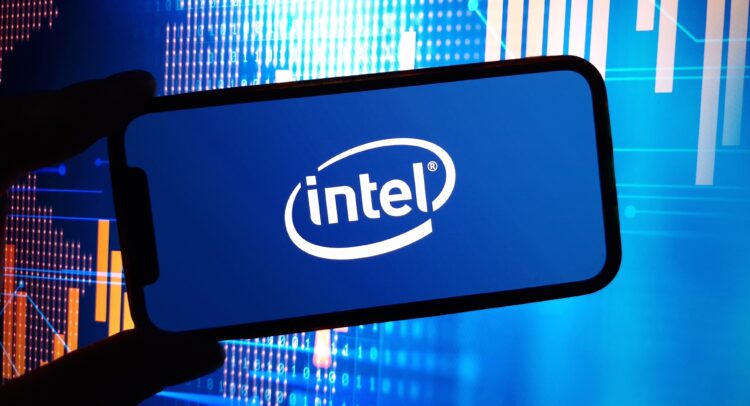There were signs that the server market was in a bit of a recession for a while. But now, thanks to things like artificial intelligence (AI) and the like, that may be turning around. And, new reports suggest that chip companies Intel (INTC) and Advanced Micro Devices (AMD) may have both come out ahead in this environment. Intel was up over 3% on the news.
Don't Miss Our Christmas Offers:
- Discover the latest stocks recommended by top Wall Street analysts, all in one place with Analyst Top Stocks
- Make smarter investments with weekly expert stock picks from the Smart Investor Newsletter
The report from Next Platform made it clear: though Intel might not be as good as it once was, it is certainly not on its last legs. In fact, the primary conclusion the report reached was that, despite AMD’s gains in the server space, “…three quarters of the X86 CPUs supplied to the datacenters of the world still say Intel underneath their heat sinks.”
The numbers tell an even starker tale. Just in the third quarter, Intel shipped 4.09 million x86 processors for servers. That was up 15.3% against the third quarter of 2023. Meanwhile, AMD rolled out 1.39 million Epyc processors in 2024’s third quarter, which was up 14.4% against the third quarter. So, Intel’s growth rate and AMD’s were actually similar, albeit Intel was growing from a higher point to begin with.
Bad Timing and Deeper Issues
Let he or she among us who has not made a bad call on a stock sale throw the first stone on this one. Intel—according to a report from Barron’s—actually owned a hefty slug of Astera Labs (ALAB), an artificial intelligence stock. But Intel sold about half of that stake—likely part of its cash-raising efforts—ahead of a major rally that saw Astera’s share price nearly double in the meantime.
And in perhaps the unkindest cut of all, a Business Insider report points out that Intel’s struggles make it poorly placed to be the chip manufacturing leader that America is looking for right now. We actually saw proof of these concerns yesterday amid reports that Intel was outsourcing more of its chip production to Taiwan Semiconductor Manufacturing (TSM).
Is Intel a Buy, Hold, or Sell?
Turning to Wall Street, analysts have a Hold consensus rating on INTC stock based on one Buy, 22 Holds, and seven Sells assigned in the past three months, as indicated by the graphic below. After a 35.87% loss in its share price over the past year, the average INTC price target of $24.43 per share implies 2.12% downside risk.




















